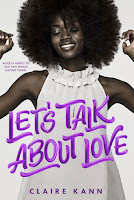Not all apples are the same.
Some are red, some are green, some are yellow, and some have
multiple colors. Some are sweet, some are tart, some are juicy, some are
snappy. Some are best for baking, others for juicing, and still others for
salads or snacking. Different varieties bloom at different points in the year,
and apples come in all sizes. It would be ridiculous to say that an apple is
defective or abnormal just because it isn’t a Granny Smith; not all apples are
the same.
And not all brains are the same.
We view the world from different points of view, influenced
by our genetics and our environment. Some of the differences in human brains
have special names like autism and dyslexia. But these differences aren’t
abnormalities or defects. They’re simply variations of the human brain; not all
brains are the same.
Representation in literature helps readers feel valued and
appreciated in their community. It’s especially critical that we help our
children learn this concept and embrace everyone. Below is a list of books that
were written recently by or about neurodiverse individuals, with a special
emphasis given to children’s literature.
This post is the third installment of Diverse Reads, a
series that gathers books with diverse characters or authors: people who are
LGBTQIA+, Native, people of color, gender diverse, people with disabilities, or
ethnic, cultural, or religious minorities. I hope that these books help open a
window for you into other worldviews.
A Friend for Henry
by Jenn Bailey
(2019)
Henry appreciates people who are
quiet, share his sense of orderliness, and won’t invade his personal space. He would
like to find a friend at school, but making friends can be difficult. Despite his
efforts that are sometimes misinterpreted, Henry keeps trying and finds a
friend he can play with.
Not If I Can Help It
by Carolyn Mackler
(2019)
Eleven-year-old Willa tries to keep her sensory processing disorder hidden from her friends at school. With her large network of adult support, she gradually gains the confidences to be unapologetically herself.
The Truth as Told by Mason Buttle
by Leslie Connor
(2018)
Mason, a seventh-grade boy with
severe dyslexia, survives bullying and finds a way to finally reveal the truth
about what happened the day his best friend died.
The State of Grace
by Rachael Lucas
(2018)
Grace, a 15-year-old with Asperger’s,
does her best to avoid attention of any kind. But when Gabe kisses her at a
party, nothing is quite the same. Grace honestly articulates her meltdowns and
gaffes in this first-person narrative.
The Bride Test
by Helen Hoang
(2019)
Khai Diep processes emotions differently because of his
autism. When he steadfastly avoids relationships, his mother takes matters into
her own hands and returns to Vietnam to find him the perfect bride.
*A version of this blogpost first appeared on Provo City Library blog.*






































